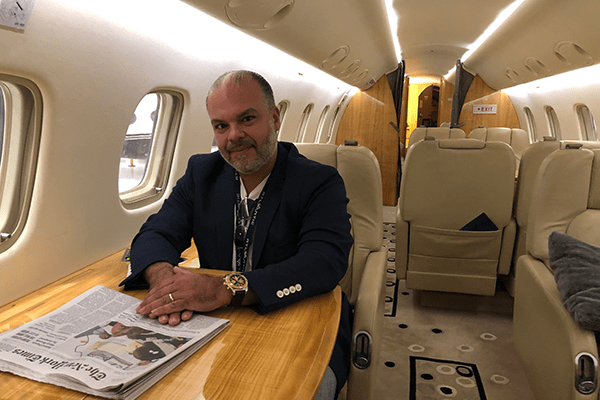By Marc Sellouk, Founder and CEO of Flewber
One of the trends to emerge from the COVID-19 pandemic is a boom in demand for private aviation. As travel restrictions were eased, the public found commercial airlines reopening with fewer routes than before and the same old problems of long wait times and delays. Moreover, many were hesitant to endure the close-quarters of the airport security line and packed aircraft during an ongoing pandemic.
It may come as no surprise then that travelers realized private flights offered a superior experience and, with new business models such as air taxi services emerging, more cost-effective than they might have previously expected. That’s why those of us in the private aviation space aren’t surprised to see the surge in demand; the public is finally figuring out what we’ve always known -- flying private is simply a better experience.
But while the renewed interest in private flights is welcome, it also comes with its challenges. Many established private charter services’ failures to meet these challenges signal that private aviation is finally ready for disruption on the magnitude of what ridesharing did to black car services.
No sign of slowing demand for private flights
In October 2021, U.S. travelers boarded 323,000 private flights, according to Argus International, an aviation industry consultancy. It was the busiest month for private air travel in 2021, surpassing July’s previous high watermark of 302,000 trips. The recent surge in flights may have a great deal to do with the COVID-19 pandemic and how it shattered common private flight myths. When commercial airlines suspended operations and dropped dozens of routes (mostly regional flights), private flights filled the gaps for many travelers.
While this is great news for the private charter flight industry, a $26 billion market, it also comes with a set of clear challenges. Increased demand for seats and new routes is spreading many existing fleets thin, in turn driving demand for new aircraft. In fact, new and pre-owned private aircraft sales are expected to generate $10.4 billion through 2025, according to Global Jet Capital. But supply chain issues mean fleets can only grow so quickly, as manufacturers like General Dynamics ($GD), Bombardier ($BDRBF), and Textron ($TXT) attempt to scale up production to meet the new demand.
As fleets struggle to keep up, passengers are also facing diminished customer service experiences, delays, and flight cancellations. According to a Private Jet Card Comparisons study, 20% of private jet passengers reported experiencing a customer service issue in recent months. This statistic makes it untenable for private charter flight services to meaningfully retain the new customers they are gaining as part of the surging demand for private flights.
For charter flight services that charge membership fees, this could be a death knell. Imagine having paid an annual membership (before even paying for your actual flight) only to learn you can’t access an aircraft on the date and time you require -- it’s unlikely you would renew your membership. To truly capitalize on the demand for private flights, an alternative business model is needed.
The advantages of air taxi services
Air taxi services enable real-time booking of private flights out of airports near you via a mobile application. They are designed to be flexible and scalable as needed, relying on more than just a single operator to source flights for users at a moment’s notice. At Flewber, for example, we don’t only rely on our own in-house fleet of aircraft (although those planes are always standing by to connect travelers to their destinations), we also leverage an entire network of other Part 135 operators with fleets of their own standing ready to serve.
In this way, despite surging demand and supply chain issues, air taxi services have the ability to augment their own capabilities with the fleets of partner-operators, getting passengers booked, seated, and on their way quickly. Because of this model, air taxi services are best positioned to disrupt the industry much the way ridesharing services changed how travelers hail a cab.
For private aviation, the question isn’t who is atop the industry now, but who is best positioned to lead after the dust settles. Only dynamic, flexible services that can scale up to meet passenger demand -- no matter how immense it is -- will be left standing after the private aviation shakeup that is already underway.
The views and opinions expressed herein are the views and opinions of the author and do not necessarily reflect those of Nasdaq, Inc.
